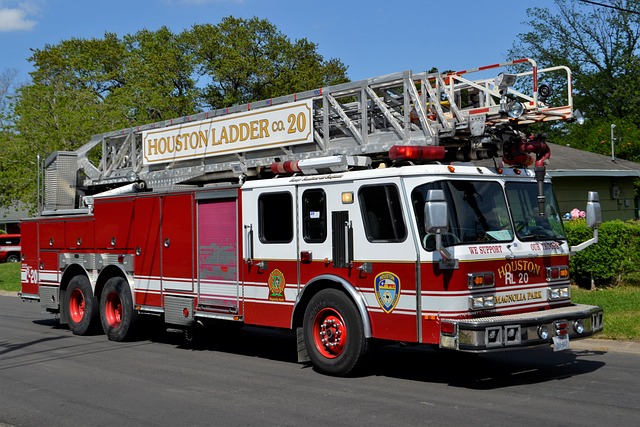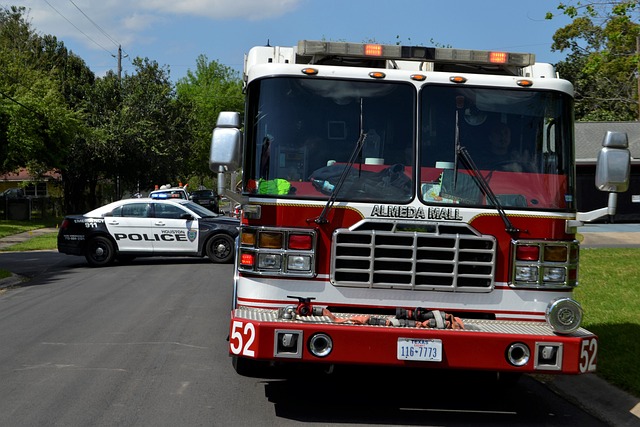In Houston, selling or buying fire-damaged homes involves navigating complex legalities and market nuances. State and federal laws mandate transparent disclosures of property damage, with sellers responsible for informing buyers about known issues like fires. While severe fires can significantly depreciate values, minor damage may not affect prices much. Real estate professionals emphasize open communication to manage buyer expectations. Investors can leverage government programs and tax benefits to renovate distressed properties, contributing to urban renewal. Thorough inspections are crucial for buyers to assess hidden damage and risks associated with fire-damaged homes in Houston's dynamic real estate market. Engaging experienced professionals helps mitigate challenges and ensures successful transactions.
“In Texas, distressed property sales, particularly those involving fire-damaged homes in Houston, present both opportunities and challenges. This article navigates the complex landscape of these sales from a legal perspective, delving into their impact on neighborhood values and providing insights for investors. We explore buying strategies, available financial incentives, successful rehabilitation cases, and key risks to mitigate. Understanding these aspects is crucial for navigating the market of fire-damaged homes in Houston.”
- Understanding Distressed Property Sales: A Legal Perspective
- The Impact of Fire Damage on Home Values in Houston
- Navigating the Process: Buying Fire-Damaged Homes in Texas
- Financial Incentives and Programs for Investors in Houston
- Case Studies: Successful Rehabilitation Projects in Houston
- Risks, Challenges, and Mitigation Strategies for Buyers
Understanding Distressed Property Sales: A Legal Perspective

Distressed property sales, including fire-damaged homes in Houston, are governed by a complex interplay of state and federal laws. When a property is deemed distressed, often due to damage from events like fires, it enters a unique legal realm that requires careful navigation. Homeowners facing such situations must understand their rights and obligations under various statutes designed to protect both buyers and sellers.
In Houston, the process involves local ordinances and state-mandated disclosures. Sellers are typically required to reveal any known issues, including fire damage, to potential buyers. This transparency is crucial for ensuring informed decisions and mitigating future legal disputes. For example, buyers may have specific rights when purchasing a fire-damaged property, such as the right to repair or terminate the sale, depending on the extent of the damage and local regulations. Understanding these legal nuances is essential for both parties to navigate the sell fire damaged home Houston market effectively and ensure a smooth transaction.
The Impact of Fire Damage on Home Values in Houston

In Houston, the impact of fire damage on home values can vary significantly depending on the extent of the damage and the location of the property. While extensive fires can severely depreciate a home’s value, minor to moderate fire damage might not drastically affect the selling price. However, properties that have experienced fire damage often face challenges when it comes to selling in the competitive Houston real estate market. Prospective buyers may be hesitant to invest in a home with such history, leading to longer days on the market or lower offers.
Real estate professionals suggest that properly disclosing and documenting the fire damage is crucial for homeowners looking to sell. An open conversation about the repairs undertaken, as well as any lingering issues, can help manage buyer expectations. In some cases, buyers might even be willing to pay a premium for a property that has been thoroughly renovated after a fire, provided they trust the work performed and the safety of the home. For those considering a purchase, it’s essential to have a thorough inspection done to understand the full scope of any fire damage before making an offer.
Navigating the Process: Buying Fire-Damaged Homes in Texas

Navigating the process of buying fire-damaged homes in Texas, particularly in areas like Houston, requires a keen understanding and careful steps. If you’re considering purchasing a fire-damaged property, it’s essential to begin by assessing the extent of damage through professional inspections. These inspections go beyond the visible to uncover hidden issues that might have been caused by smoke, water, or structural integrity compromised during the fire.
Once the inspection is complete and potential costs for repairs are estimated, buyers can then decide whether to proceed with a traditional purchase or take advantage of specific programs designed for distressed properties. The latter could include government-backed loans or grants aimed at revitalizing communities affected by disasters like fires. This route often involves working closely with real estate agents specializing in such sales and understanding the legal framework surrounding fire-damaged property sales in Texas.
Financial Incentives and Programs for Investors in Houston

Houston, with its dynamic real estate market, offers unique opportunities for investors interested in distressed properties. Financial incentives and programs specifically cater to those looking to buy and rehabilitate fire-damaged homes. The Texas Department of Housing and Community Affairs (TDHCA) provides a range of assistance, including low-interest loans and grants, to encourage the renovation of blighted or damaged properties. These initiatives aim to stimulate local economic growth by revitalizing communities.
Investors can take advantage of tax benefits and incentives designed to promote community development. The federal tax code offers deductions for rehabilitating properties, making it financially appealing to buy and restore fire-damaged homes in Houston. Additionally, local programs like the Houston Property Rehabilitation Program (HPRP) provide financial support, ensuring investors can maximize their returns while contributing to the city’s ongoing urban renewal efforts.
Case Studies: Successful Rehabilitation Projects in Houston

Houston, a vibrant city known for its bustling metropolis, has witnessed a rise in distressed property sales, including many fire-damaged homes. However, amidst this challenge, there are success stories of rehabilitation projects that have transformed these damaged properties into thriving assets. These case studies offer valuable insights into the potential of restoring and revitalizing areas affected by fires.
One notable example is a rehabilitation project in a historically impacted neighborhood of Houston. A once-blighted fire-damaged home was meticulously restored, incorporating eco-friendly materials and modern design elements. The property, after a significant renovation, sold for a premium price, showcasing the market’s appreciation for well-rehabbed properties. This case study highlights how strategic renovations can not only revive communities but also provide investors with attractive returns, making it an appealing option for those looking to navigate the sell fire damaged home Houston market successfully.
Risks, Challenges, and Mitigation Strategies for Buyers

Buying a distressed property, especially a sell fire damaged home in Houston, can present unique risks and challenges for prospective buyers. These properties often require significant repairs, which can be costly and time-consuming. Fire damage, in particular, may reveal hidden issues like structural problems, mold growth, or hazardous materials that were not immediately apparent. Buyers should conduct thorough inspections and obtain professional assessments to mitigate these risks.
Additionally, distressed properties might be sold at a discount, but they often come with legal complexities such as outstanding liens, tax issues, or disputes over ownership. Buyers need to navigate these challenges meticulously, ensuring all necessary paperwork is in order and addressing any pending matters before finalizing the purchase. Engaging experienced professionals like lawyers and real estate agents familiar with distressed sales can significantly aid in mitigating these risks and ensuring a smooth transaction.
Texas’ distressed property sales landscape, particularly in areas like Houston, presents both opportunities and challenges. Understanding the legal aspects of these transactions, recognizing the impact of fires on real estate values, and navigating the specific processes involved are crucial for investors. The financial incentives available can mitigate risks, as evidenced by successful rehabilitation projects across the city. By adopting strategic mitigation strategies, buyers can navigate this dynamic market effectively, contributing to Houston’s evolving property landscape while considering the unique complexities of selling fire-damaged homes.






